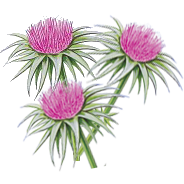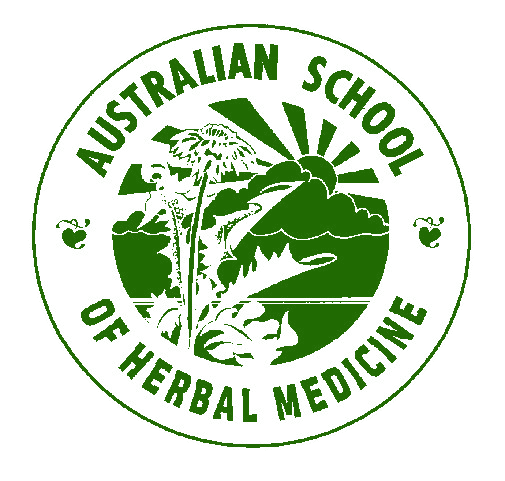
St Mary’s thistle (Silybum marianum) is undoubtedly the best-documented pharmaceutical agent for the treatment of serious liver disease. The herb is now widely used by the medical profession to treat alcoholic hepatitis, alcoholic fatty liver, liver cirrhosis, liver poisoning and viral hepatitis, as well as to protect the liver from the effects of liver-toxic medicines. Naturopaths also recommend St Mary’s thistle as one of the main treatments for a sluggish liver.
St Mary’s thistle has been known as a traditional liver tonic for centuries
and current medical research has confirmed its amazing liver-healing properties. The active flavonoid ‘silymarin’ is a most unique type of flavonoid with antioxidant ability. Silymarin goes directly to the liver cells’ centre to start new protein formation which causes cell reproduction, regeneration and repair in cases of intestinal cancer. It acts as a powerful antioxidant and also prevents the formation of toxins.
St Mary’s thistle is powerful as a liver cell protector
Based on traditional use, St Mary’s thistle has been used as an emergency antidote for poisoning by death cap mushroom (Amanita phalloides). Animal studies have found that milk thistle extract completely counteracts the toxic effects of the mushroom when given within 10 minutes of ingestion. If given within 24 hours, it significantly reduces the risk of liver damage and death.
Almost all ingested alcohol is metabolised in the liver and excessive alcohol use leads to acute and chronic liver disease. Amazingly, liver damage caused by alcohol and hepatitis is reversed and repaired by the action of this wonderful herb. It is also known as an anti-inflammatory, antioxidant and anti-hypoglycaemic. It is especially beneficial for liver problems including jaundice, cirrhosis and damage from drug and alcohol abuse.
This herb also works to prevent plaque build-up and prevent hardening of the arteries. It is rich in bioflavonoids and helps to increase membrane strength and reduce membrane permeability. It helps with protein synthesis, speeds up the process of liver regeneration, protects the kidneys and is beneficial to those with psoriasis.
Recent laboratory studies suggest that silymarin and other active substances in St Mary’s thistle have anti-cancer effects. These substances appear to:
- Stop cancer cells from dividing and reproducing
- Shorten the lifespan of cancer cells
- Reduce blood supply to tumours
The primary cleansing organ of the body is the liver. A properly functioning liver creates bile whose job it is to go into the bloodstream, gather the toxins lurking there and dispose of them through the body’s elimination system.
St Mary’s thistle is rich in calcium, contains moderate amounts of vitamins A, B-complex and C, potassium, phosphorus, selenium, small amounts of sodium, chlorine, magnesium, iron, niacin and trace amounts of minerals including manganese, silicon and strontium.
Recipe for Liver disorders:
- 45 g Agrimony
- 45 g Dandelion
- 10 g Calendula
- 10 g Wormwood
Prepare the mixed herbs as a hot infusion and sip 3 cups throughout the day.
In addition take one St Mary’s thistle capsule twice daily.
In our Gastro-Intestinal System Lesson 3 online, we cover why digestion is important, and how its over or under activity can affect the system in different ways, enrol now!
